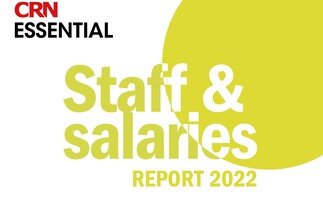Unhappy IT providers have lobbied the government for change to Digital Services and G-Cloud frameworks
To say some IT suppliers are angry about the way two of the government's biggest IT procurement frameworks are run would be something of an understatement. "A travesty", "a pointless experience" and "completely impractical" are just some of the phrases that popped up when suppliers on G-Cloud and the Digital Services Framework (DSF) spoke out about the schemes in a bid to encourage the government to take note, listen, and make changes.
G-Cloud and DSF were set up in 2012 and 2013 respectively and as of this month sit together under the government's Digital Marketplace umbrella. Suppliers on the former framework provide the government with a range of specialist cloud services as well as infrastructure-, platform- and software-as-a-service kit, while DSF focuses more on helping the public sector buy, design, build and implement digital services such as web design and user experience. They were each designed to comply with the government's "digital by default" ambitions and its aim to get more SMBs supplying the public sector with the services.
But despite the government's good intentions in helping smaller IT firms get into its supply chain through the frameworks, some are far from happy.
Speaking up
A trio of SMB suppliers on DSF became so disillusioned with the framework they saw no other option but to team up together to get their voices heard in the corridors of power.
Suppliers Helpful Tech, Clearleft and DXW - which provide the government with web design services through DSF - each issued blogs about t he framework, outlining their concerns.
he framework, outlining their concerns.
DXW's managing director Harry Metcalfe explained that the problem with DSF is the way it tenders for projects according to an individual's capabilities instead of a company's entire offering.
"If [an organisation] wanted some designers, some developers and a delivery manager [for one project], they would put that contract out but all those roles are on different lots on the framework," he told CRN. "This means you have to respond to these individually and there is no guarantee you would win all or any of them. In which case, from my perspective of running a business, all my developers will run off to deliver a project and the designers and delivery managers have nothing to do because they can't work. This in practice is very, very difficult for companies to accommodate so many companies have not bid for work through DSF."
Fellow DSF supplier Clearleft's founder Andy Budd agreed.
"This sort of piecemeal selection of roles strips away the value of teams' experience, techniques, and processes, just leaving the bare individuals to try to make the best of projects they've had no part in setting up or defining," he said. "The framework as it's currently set up is essentially a body-shopping process."
DSF was designed with the government's SMB-friendly agenda in mind and it insists that 84 per cent of suppliers on the framework fit into that category. But the supplier trio say the way it has organised the framework makes it practically unmanageable for smaller firms.
Metcalfe said: "There is no way SMBs can work this way. We either need to have everyone involved in a project or have several going at once in order to keep everyone busy so a situation where half the team gets taken out to deliver a project on-site is completely impractical."
In a statement sent to CRN, the Cabinet Office defended its SMB credentials and said it was doing its best to improve DSF.
"DSF is levelling the playing field for government contracts and supporting growth by giving opportunities to smaller suppliers," it said.
"We know more needs to be done to ensure that the needs of those who are building digital public services are met. We will further reduce the barriers for suppliers to provide highly capable individuals and teams to work with them. We welcome feedback, and we're constantly iterating and improving the service."
In a blog post issued last week, the government added that it will not scrap the Digital Services 2 framework because suppliers that had already applied for a place on it would have wasted their time. It admitted the scheme had been "disappointing" - invoiced spending through it stands at just £6.7m, compared with predictions of £40m - but it vowed to improve it for the third iteration.
The three suppliers said their protest was designed with the sole aim of improving DSF, and said moving towards a G-Cloud-style framework - where companies can supply a complete solution instead of separate sections - would be welcomed.
"Rather than just shrug and cry sour grapes, we'd like to get this problem fixed," Budd added.
"G-Cloud is a step in the right direction, and institutions such as the BBC with its Digital Services frameworks have shown that even stringent, rigorous processes can be light of touch, and focus on the criteria that really matter."
The grass is always greener?
Despite being hailed as the example to follow by angry DSF suppliers, the G-Cloud framework is far from perfect, according to Memset, one of its SMB suppliers.
Last week, G-Cloud hailed a boost in the number of suppliers in the latest iteration of the framework. Memset acknowledged that the rise proves the scheme is making progress, but said its true intentions are yet to be realised.
According to G-Cloud sales data, 78 per cent of G-Cloud's total £31.7m sales go through lot 4 - specialist cloud services - which Memset claims has a heavy focus on consultancy services. The remaining lots - software-, platform-, and infrastructure-as-a-service - collectively account for the remaining 22 per cent of sales.
Memset described the latter three lots as "true" cloud services and said it was disappointing that more sales do not go through them.
"Doing lots more consulting through specialist cloud services just gets them back into the old trap," said Memset's managing director Kate Craig-Wood (pictured below).
"What they should be doing is true cloud services, which are reusable, scalable and pay-as-you-use. The experience we have had is that the government is just not ready to make that transition yet and that is a real problem. G-Cloud is great and it was always going to be a slow burner, but it is frustrating to come across clients who want to buy through G-Cloud but really what they want is the same old monolithic contract where they get everything together in one bunch."
She added that some suppliers can be guilty of shunning the cloud for a bigger invoice.
"It has been a perennial issue with cloud adoption in government. There is a motivation among suppliers to not actually sell cloud because the most money is in selling people - selling consultancy and bespoke stuff - and that is what the industry is geared up to do," she said. "That's how they have historically made their money. A lot of companies have armies of consultants and the cloud puts them out of business."
G-Cloud data shows that to date, a whopping 77.3 per cent of all G-Cloud sales went through central government. The wider public sector made up another 16.1 per cent, with local government accounting for a mere 6.1 per cent of sales. The remaining portion was split between "other" and not-for-profit organisations.
Craig-Wood described local government's lack of interest in G-Cloud as a travesty.
"We have encountered a lot of resistance when we have tried to sell cloud services into local government," she said.
"There are bits of local government that are trying to break that mould, but they want to do their own thing. They prefer to do it themselves [not through pan-government frameworks] and really, it is a travesty.
"I have seen some of the costs some local authorities are paying for things such as networking and infrastructure and they are wasting money hand over fist. They would be much better off making use of G-Cloud - local government is one of the best use cases. They all have similar requirements so it makes sense for them to be on a shared marketplace and taking advantage
of collective buying power."












